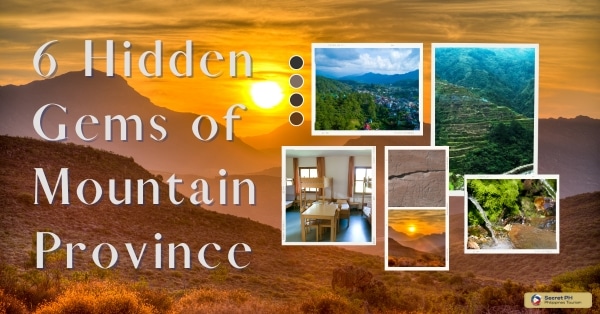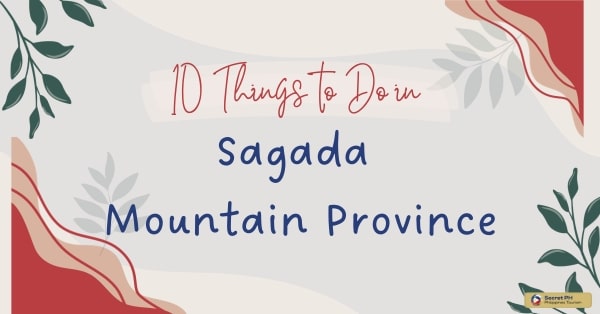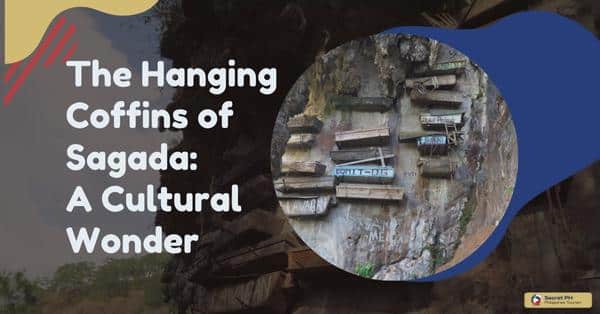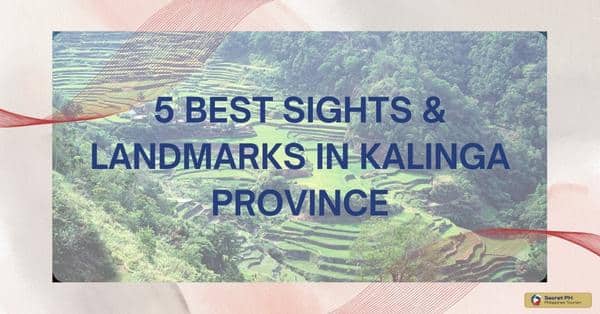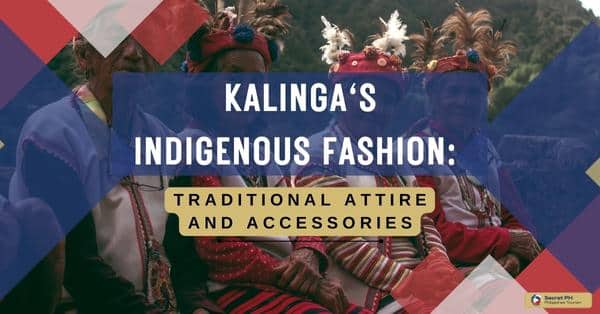Immerse yourself in Abra’s rich heritage through cultural tours. Witness traditional rituals, indulge in diverse culinary delights, and explore artistic expressions. Engage with locals, discover indigenous traditions, and embrace the province’s natural wonders. Prepare for an enchanting journey into Abra’s vibrant cultural tapestry.
Join us as we explore the many wonders of this magical land. Delight in local attractions, explore unique cultures and delve deep into the treasures of Abra. Get ready for a memorable journey through one of the Philippines’ most fascinating provinces!
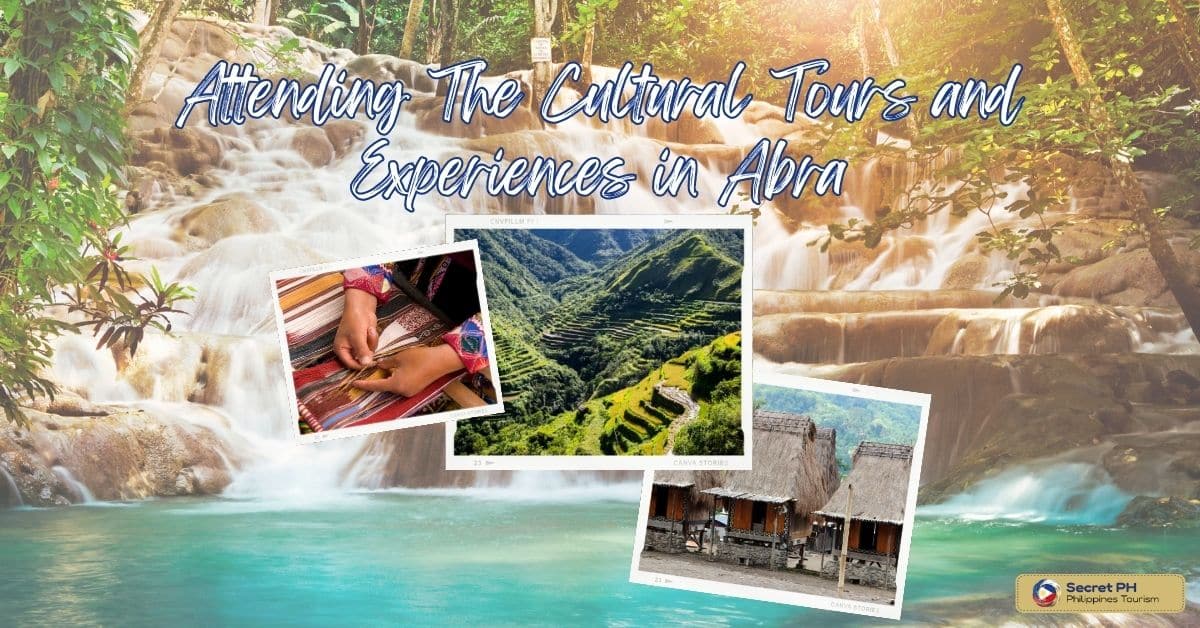
Exploring Abra’s Rich Heritage and Traditions
Journeying through the Philippines, one can experience a stunning array of cultures, traditions, and histories. One area of this vibrant nation that shines particularly bright in terms of tradition is Abra.
From its rich textiles to its vibrant music. Abra is a hub of lively and unique traditions that have been passed down through generations. The province is known for its passion for crafts, particularly textiles – making intricate fabric and weaving baskets and bags is a common practice.
Visitors to the area can take part in traditional dances and watch cultural performances. Immersing themselves in the vibrant identity of this special part of the world. Whether it’s exploring the ancient customs of the local indigenous tribes or sampling some of the unique dishes that the region boasts, delving into Abra’s rich heritage is not to be missed.
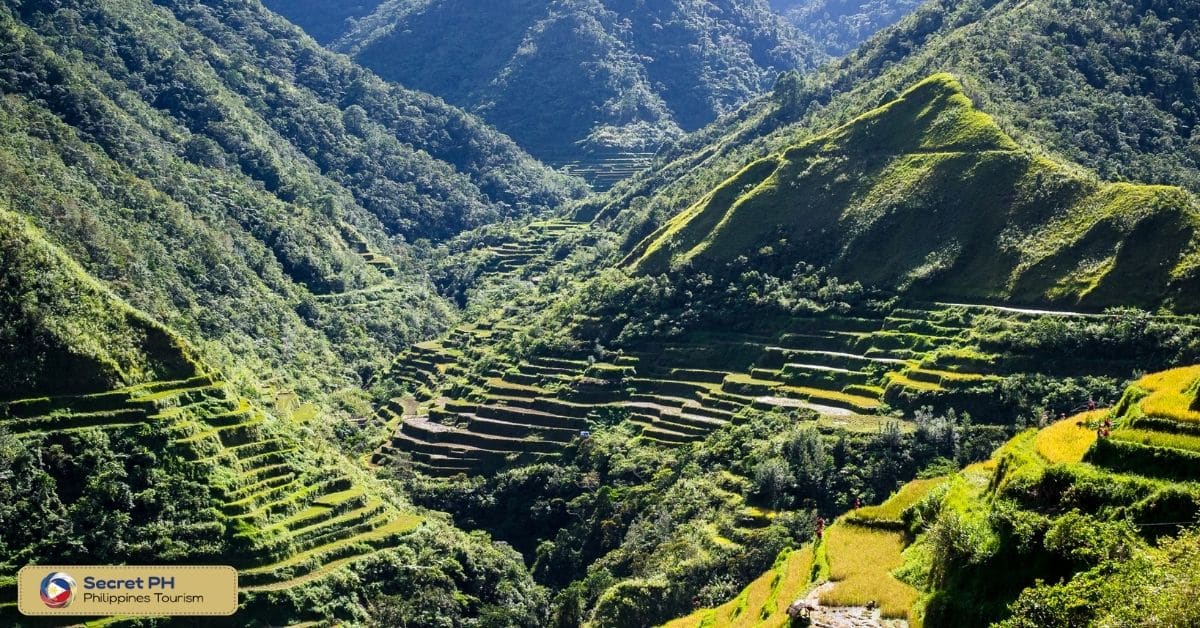
Immersive Cultural Experiences in Abra’s Indigenous Communities
Abra, a province in the northern Philippines, is home to several indigenous communities that have preserved their unique cultural heritage for generations. Visitors to Abra have the opportunity to engage in immersive cultural experiences that offer a glimpse into the rich traditions, customs, and way of life of these indigenous communities.
Traditional Rituals and Ceremonies
Immerse yourself in the spiritual and ceremonial practices of Abra’s indigenous communities. Witness traditional rituals and ceremonies that play a significant role in their daily lives, such as the performance of traditional dances, music, and chanting. These rituals often reflect their connection to nature, ancestral spirits, and their beliefs in harmony and balance.
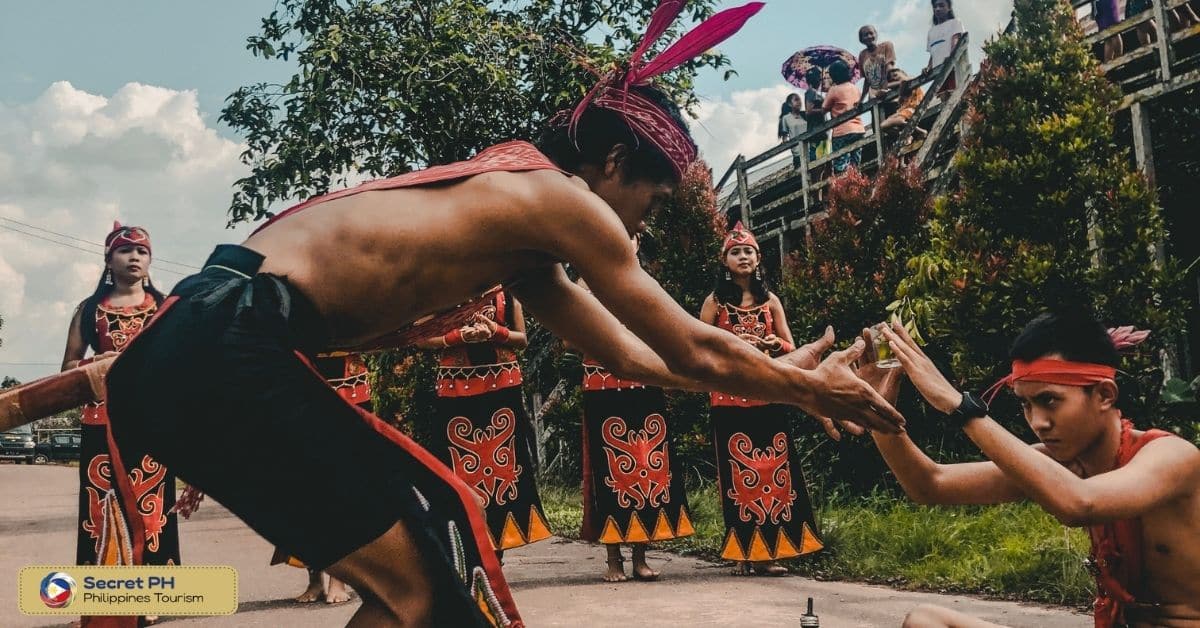
Homestays and Community Encounters
Stay in a traditional indigenous village and experience the warm hospitality of the locals. Many communities offer homestay programs where visitors can live with a host family, participate in their daily activities, and gain insights into their traditional practices. Engage in conversations with community members, learn about their history, and hear captivating stories that have been passed down through generations.
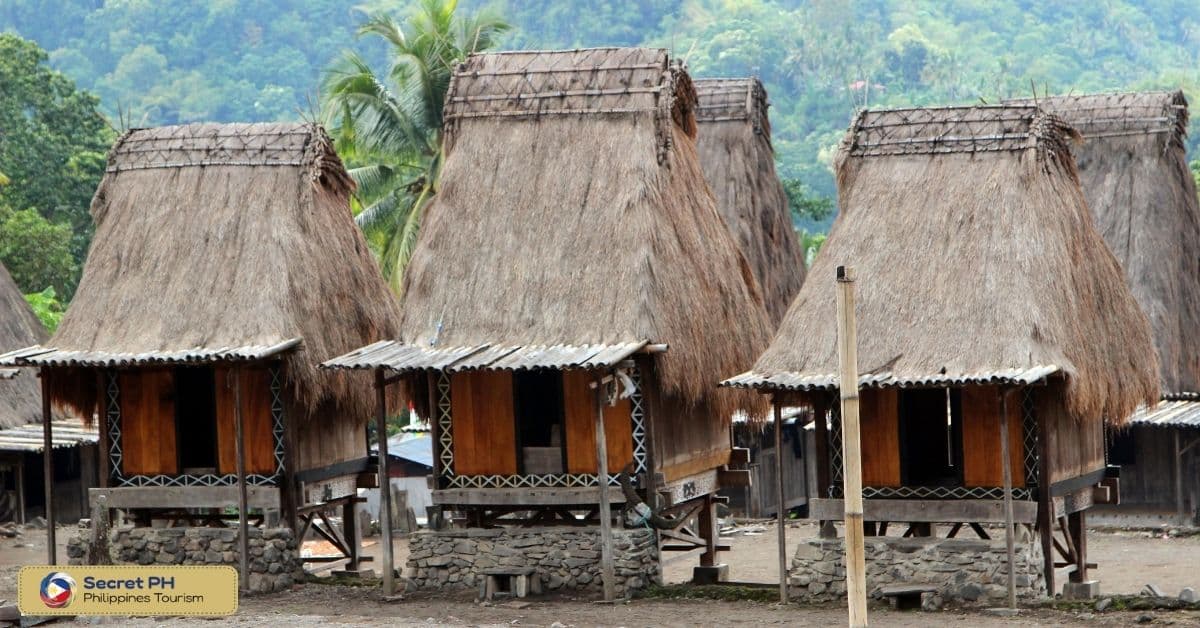
Traditional Crafts and Artisans
Abra’s indigenous communities are renowned for their exquisite craftsmanship. Explore the art of weaving, pottery-making, basketry, and other traditional crafts. Visit local artisans in their workshops and witness the meticulous techniques they employ to create beautiful handicrafts. You may even have the opportunity to try your hand at these crafts under the guidance of skilled artisans.
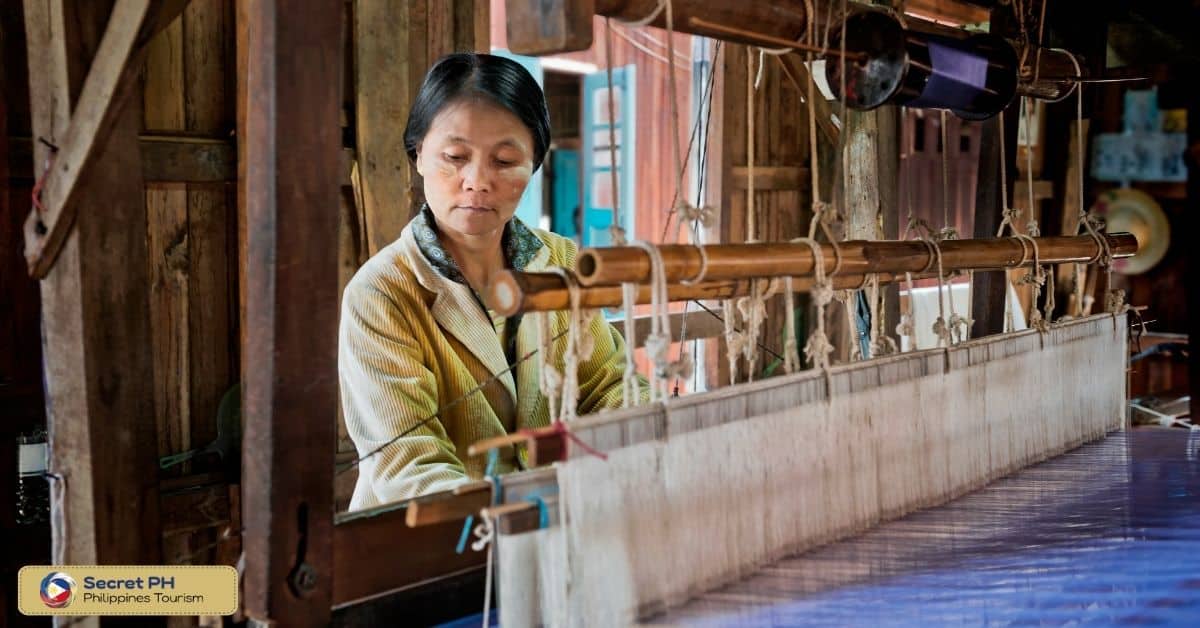
Indigenous Culinary Traditions
Delve into the flavors of Abra’s indigenous cuisine. Indigenous communities have distinct culinary traditions that showcase their connection to the land and their use of locally sourced ingredients.
Participate in cooking demonstrations, where you can learn traditional recipes and techniques. Savor unique dishes and delicacies, such as pinuneg (blood sausage), inyan-ed (smoked meat), and other specialties that reflect the indigenous heritage of the region.
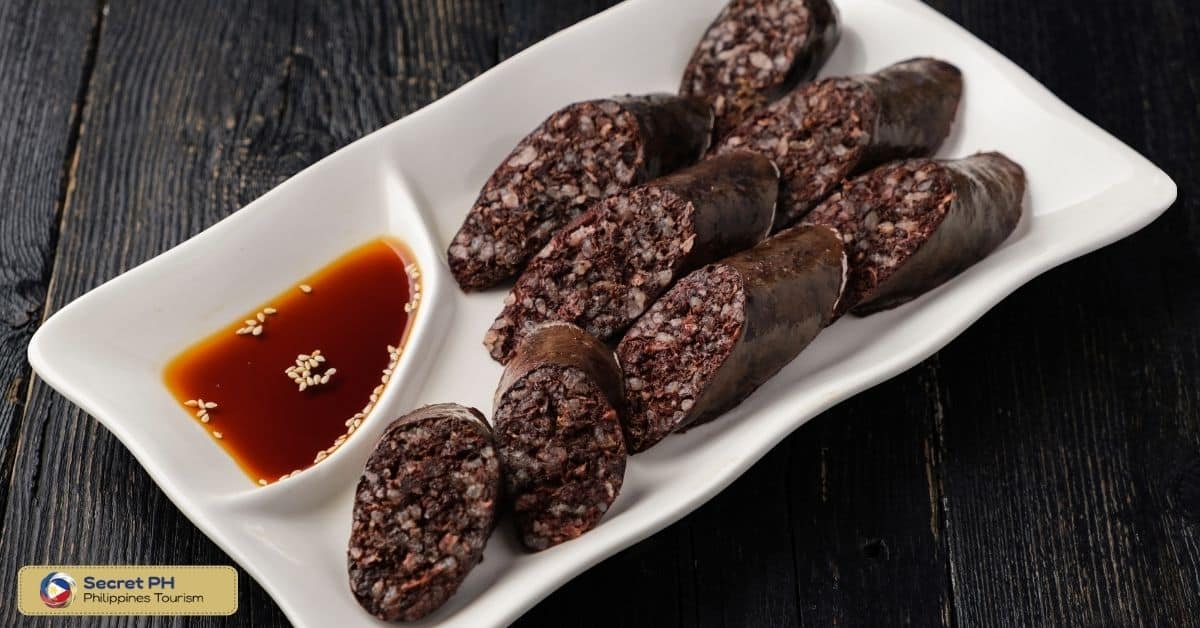
Immersing yourself in Abra’s indigenous communities offers a unique opportunity to gain a deeper understanding and appreciation of their rich cultural heritage. These experiences not only enrich your journey but also contribute to the preservation and appreciation of these indigenous traditions for future generations.
Unveiling Abra’s Culinary Delights and Gastronomic Adventures
Embark on a culinary journey in Abra, a province in the Philippines renowned for its rich and diverse gastronomic offerings. From traditional indigenous cuisine to fusion dishes influenced by neighboring regions, Abra’s culinary delights are a treat for food enthusiasts.
Here, you can experience a harmonious blend of flavors, textures, and aromas that reflect the unique cultural heritage of the region.
Pinuneg
Pinuneg is a traditional indigenous dish that showcases Abra’s culinary heritage. It is a type of blood sausage made with pork or beef blood, mixed with various herbs, spices, and rice. The mixture is then stuffed into animal intestines and cooked until firm and flavorful. Pinuneg is often served with spicy vinegar and is a must-try dish for adventurous eaters.
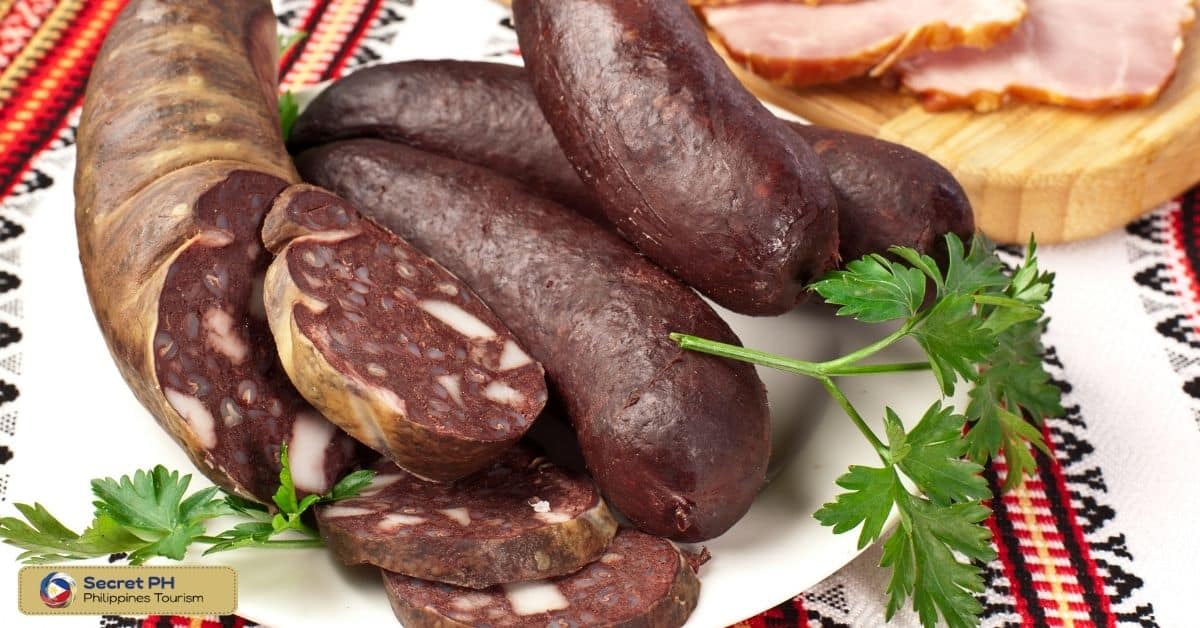
Inyan-ed
Inyan-ed is a mouthwatering smoked meat dish that is a specialty of Abra. It is prepared by marinating pork or beef in a flavorful mixture of spices, salt, and vinegar. The meat is then smoked over low heat, allowing it to absorb the smoky flavors. The result is a tender, smoky, and savory delight that pairs perfectly with steamed rice.
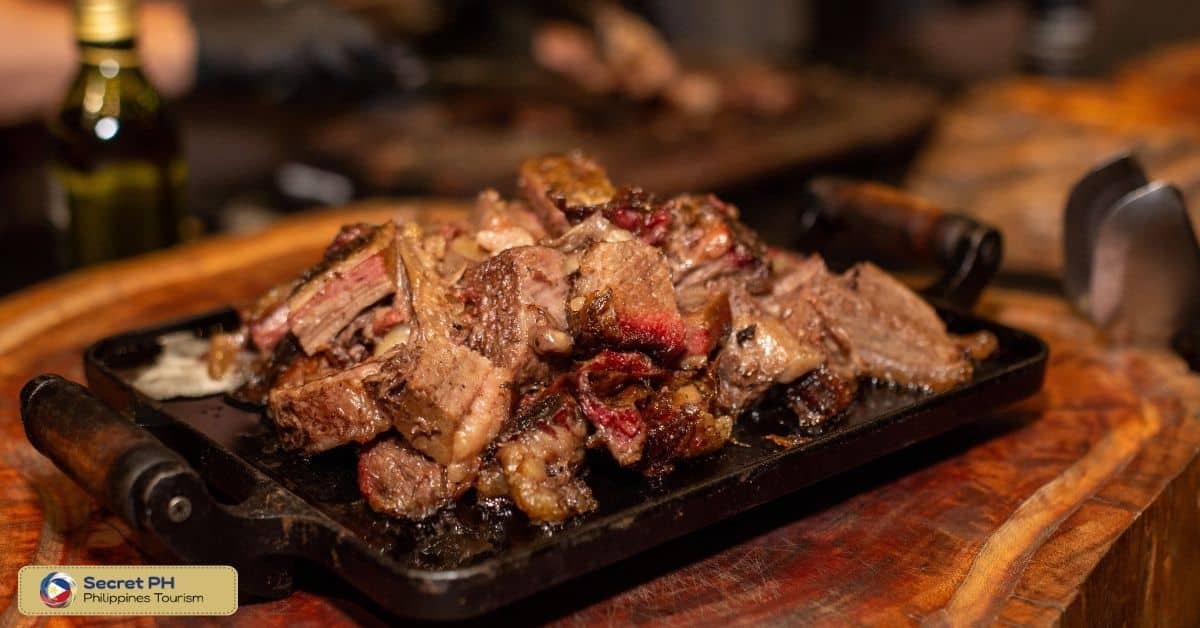
Kinni-kinni
Kinni-kinni is a unique and traditional dessert in Abra. It is made from glutinous rice cooked in coconut milk and sweetened with sugar or molasses. This creamy and slightly sweet dessert is often served wrapped in banana leaves, adding an earthy aroma to the dish. Kinni-kinni is a delightful way to end a meal and experience Abra’s sweet culinary offerings.
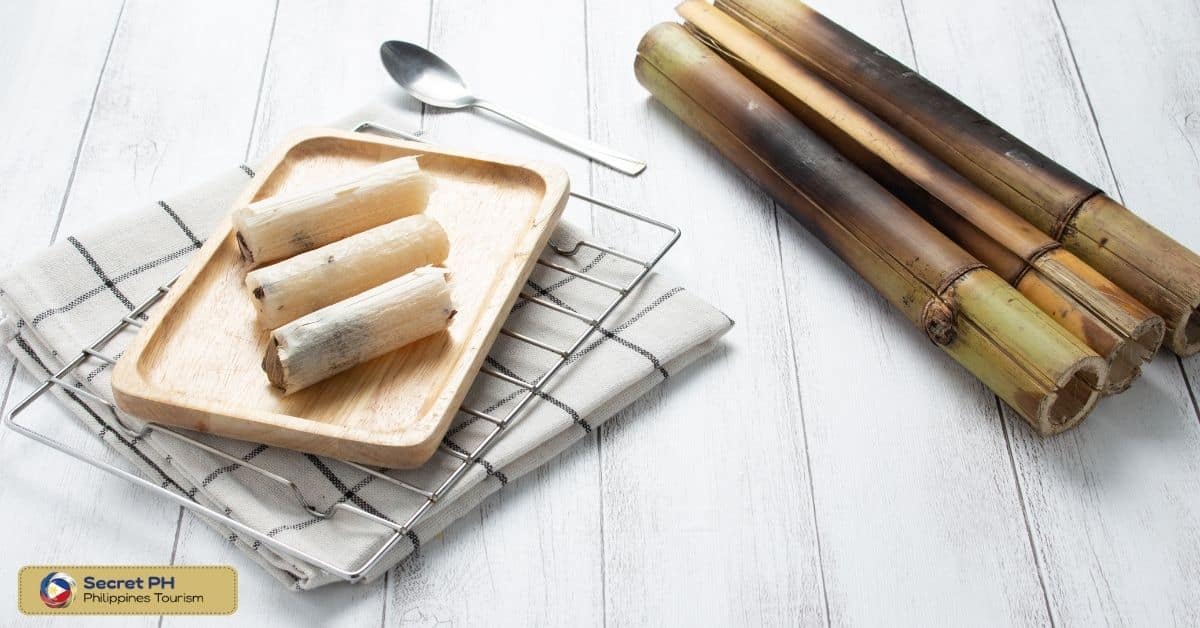
Sinanglao
Sinanglao is a popular soup dish in Abra, especially enjoyed by meat lovers. It is made from beef or carabao offal (internal organs) simmered in a flavorful broth with spices, herbs, and bile, which gives it a distinct bitter taste. The dish is often garnished with onions, chili peppers, and calamansi (Philippine lime) juice, providing a bold and hearty flavor.
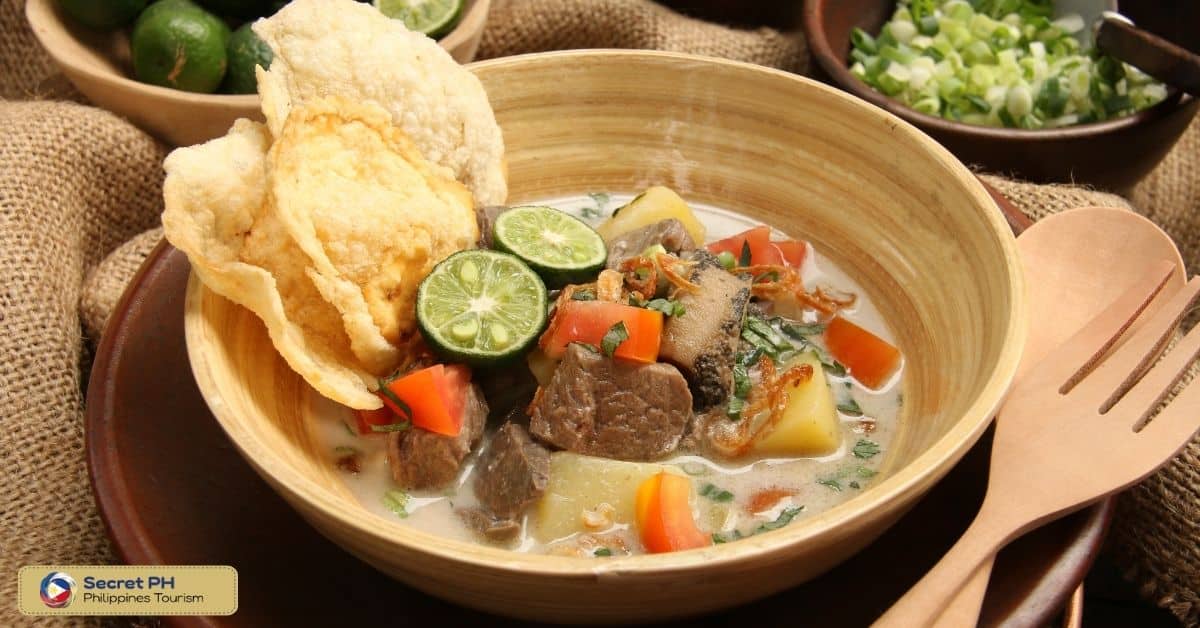
Adobo nga Imarugtong
Adobo nga Imarugtong is a unique twist on the classic Filipino dish, adobo. In this version, chicken or pork is cooked with a combination of vinegar, soy sauce, garlic, onions, and ginger, like traditional adobo.
However, what sets it apart is the addition of imarugtong, a local ingredient made from burnt rice grains. The imarugtong adds a smoky and slightly nutty flavor, giving the dish a distinctive character.
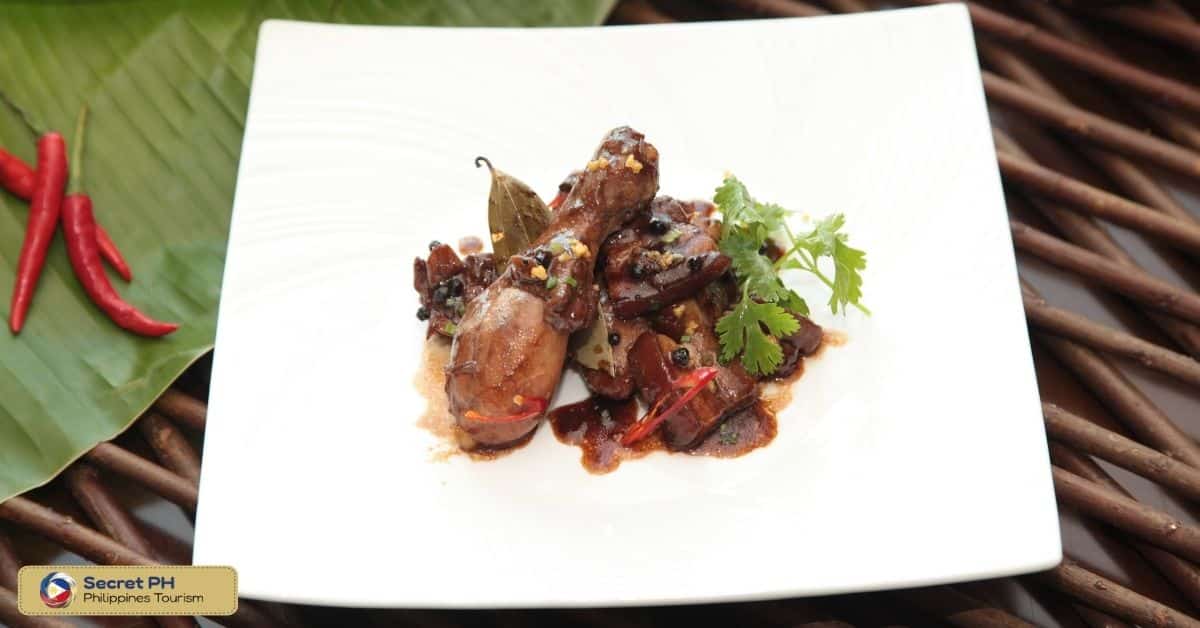
These culinary delights are just a glimpse of the diverse and flavorful food scene in Abra. Whether you’re a food enthusiast or an adventurous eater, exploring Abra’s gastronomic adventures will leave you with a deep appreciation for the region’s culinary heritage. So, prepare your taste buds for an unforgettable culinary experience in Abra!
Discovering Abra’s Art and Handicrafts: A Journey of Creativity
Abra, a province in the Philippines, is home to a vibrant community of talented artisans and craft-makers. Exploring this region is a must for anyone interested in discovering the beauty of traditional art and craft.
Abel Iloco Weaving
One of the most renowned art forms in Abra is Abel Iloco weaving. This traditional weaving technique has been practiced for generations by the Ilocano people of Abra. Skilled weavers use a traditional wooden loom to create intricate and colorful fabrics known as “abel.”
These fabrics are often used to make garments, home decor items, and accessories. Each design tells a story and reflects the cultural identity of the Ilocano people.
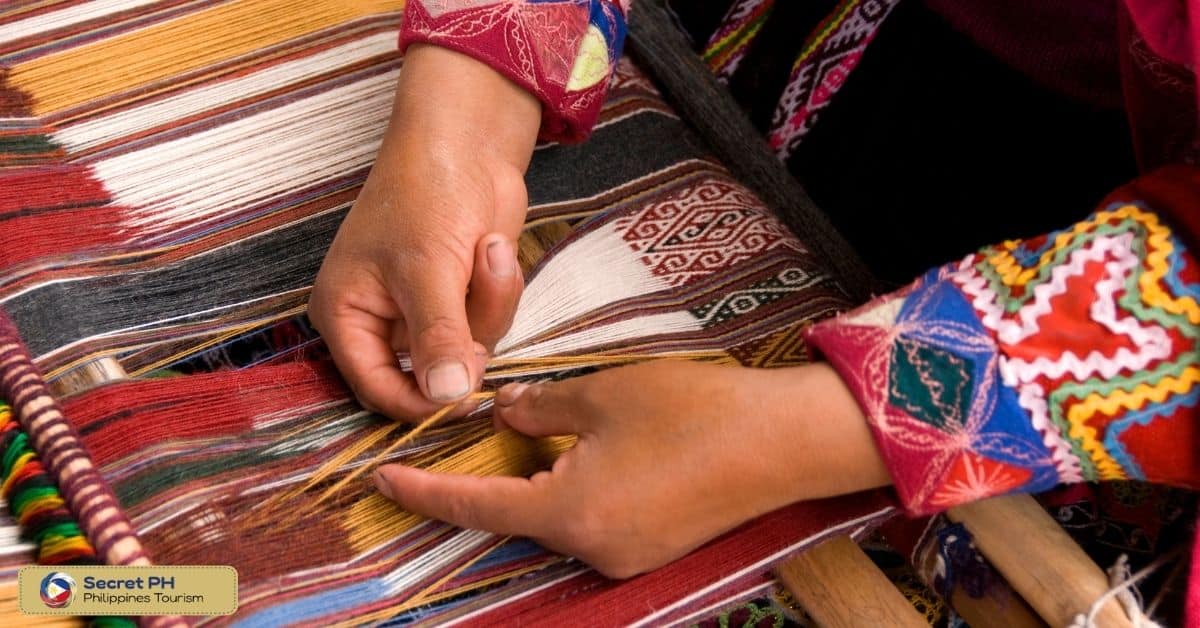
Burnay Pottery
Abra is also famous for its unique Burnay pottery. This traditional pottery style involves the use of a kick wheel and clay sourced from nearby areas. Burnay pottery is characterized by its distinctive form and texture, with intricate patterns and designs hand carved onto the surface.
The finished products, such as jars, vases, and other vessels, are known for their durability and timeless beauty. Witnessing the skillful hands of the potters and learning about the history and techniques behind Burnay pottery is a fascinating experience.
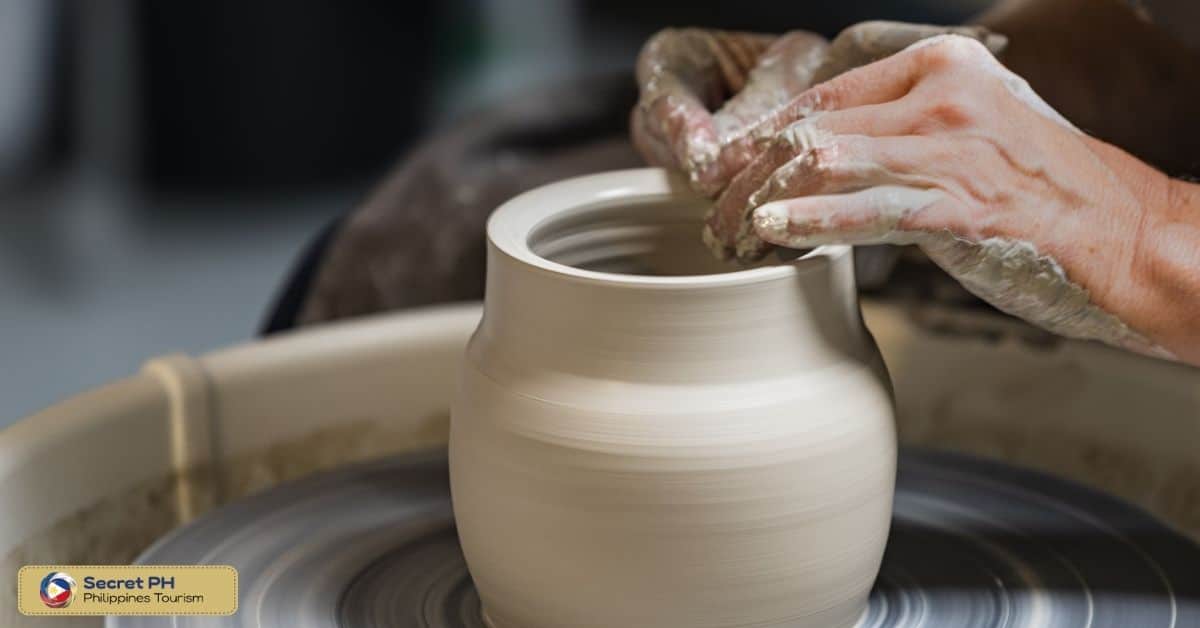
Bao-ing
Bao-ing is a traditional handicraft in Abra that involves the creation of intricate and colorful palm leaf hats. These hats are skillfully woven using palm leaves, resulting in unique and visually appealing designs.
Bao-ing is not only a functional accessory to protect against the sun but also a symbol of the region’s craftsmanship and creativity. Exploring the process of making bao-ing and even trying your hand at weaving can provide a deeper appreciation for this traditional craft.
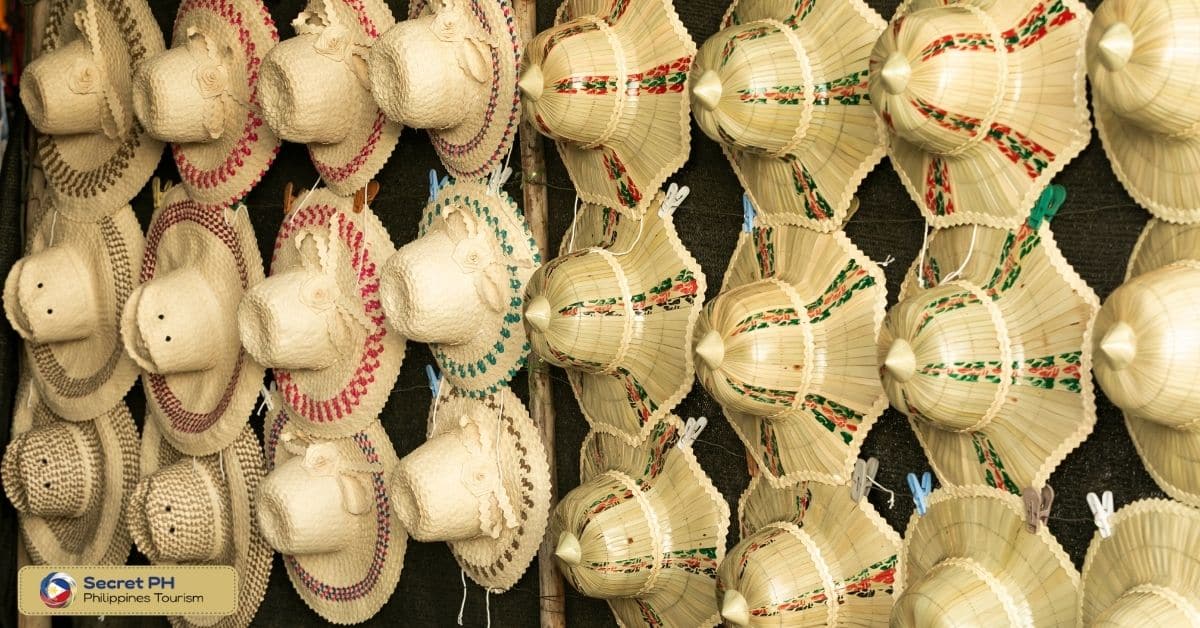
By exploring Abra’s art and handicrafts, you’ll have the opportunity to witness the passion and dedication of local artisans as they preserve and evolve their traditional crafts. From textiles and pottery to handmade accessories, each piece tells a story and reflects the beauty and cultural heritage of Abra.
The Natural Wonders of Abra: Nature-based Cultural Experiences
Abra, a province located in the northernmost part of the Philippines, is a nature lover’s paradise. The province is home to several breathtaking natural wonders that leave visitors in awe. From the towering peaks that provide panoramic views of the province to the verdant rice terraces, there is something awe-inspiring at every turn.
However, what makes Abra truly unique is how it blends its natural wonders with local culture, creating truly extraordinary experiences for visitors. Whether it’s witnessing age-old farming techniques or tasting local delicacies, visitors get a chance to immerse themselves in the local culture while enjoying the natural beauty of Abra.
These nature-based cultural experiences are sure to leave a lasting impression on every visitor fortunate enough to explore the province.
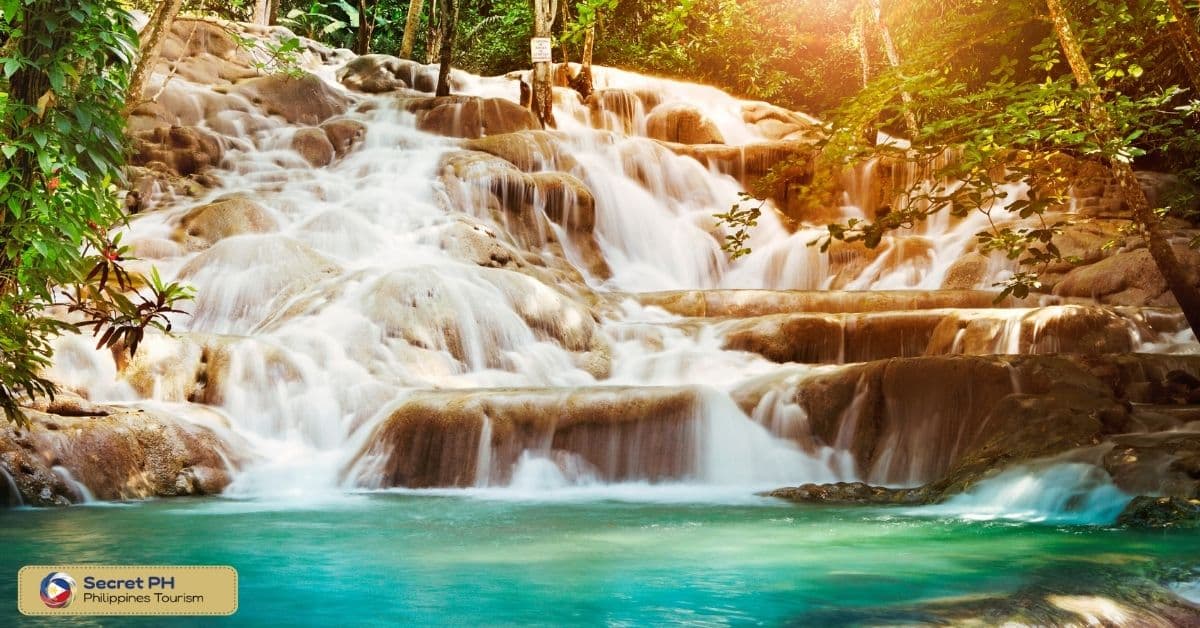
In conclusion
Attending the cultural tours and experiences in Abra, Philippines is a rewarding adventure that offers an opportunity to explore the vibrant history, tradition, and lifestyle of the locals. From visiting the centuries-old churches, museums, and landmarks.
To try the delightful local cuisine and learn the traditional dances and rituals, there is something for everyone who wants to immerse themselves in the rich cultural heritage of the Philippines.
Moreover, the natural beauty of the region, with its scenic mountains, rivers, and waterfalls, adds to the charm of the cultural tours and experiences that provide a window into the unique identity of Abra.
With knowledgeable guides, comfortable accommodations, and a welcoming community, attending cultural tours in Abra can be an unforgettable experience of a lifetime.

